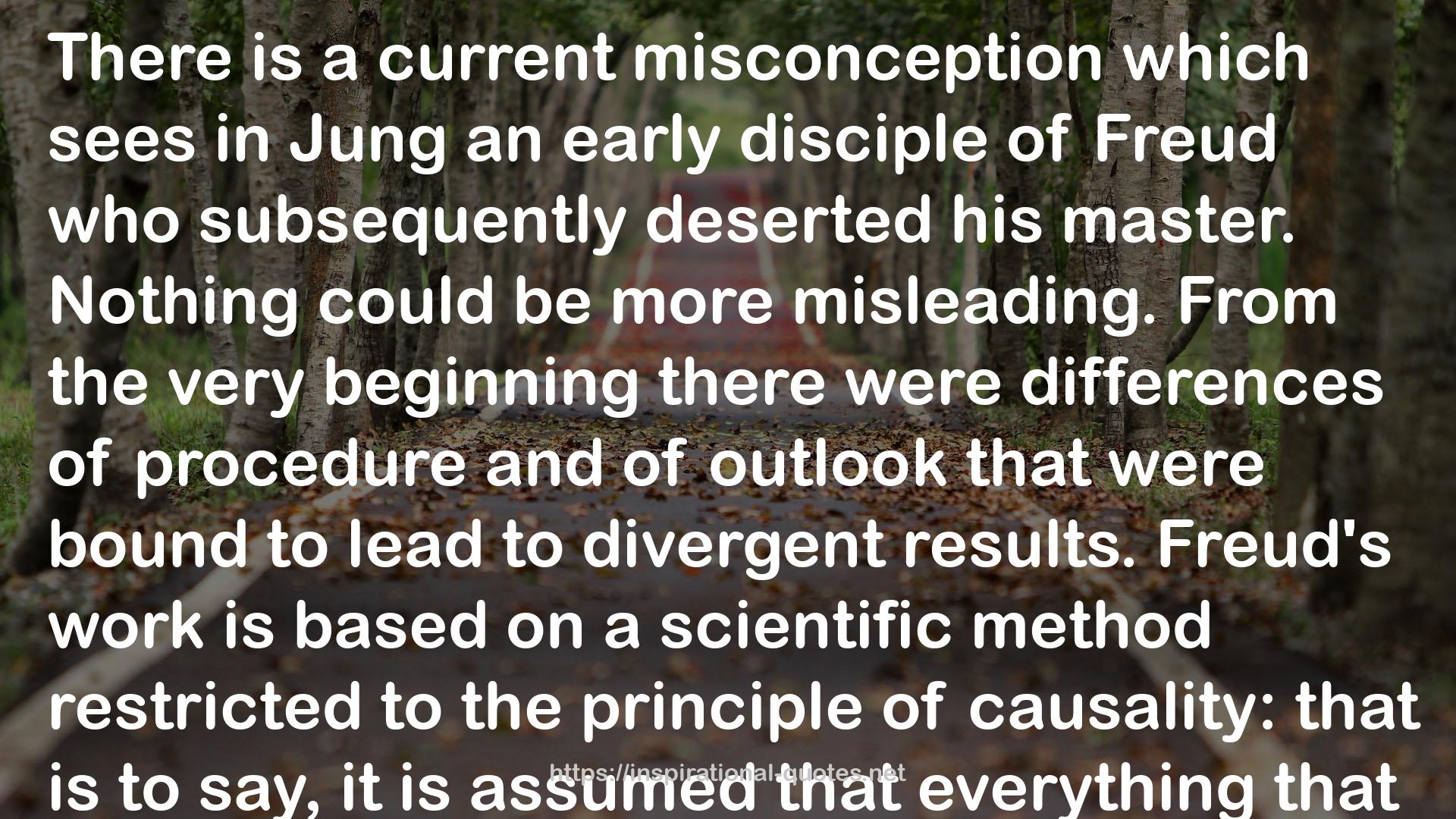" There is a current misconception which sees in Jung an early disciple of Freud who subsequently deserted his master. Nothing could be more misleading. From the very beginning there were differences of procedure and of outlook that were bound to lead to divergent results. Freud's work is based on a scientific method restricted to the principle of causality: that is to say, it is assumed that everything that happens has an explanation in prior causes, and is merely the result of those causes. The world is a mechanism that can be taken to pieces and we can only understand how it works if we know how to dismantle and reassemble its constituent parts. Jung does not deny this causal principle, but he says it is inadequate to explain all the facts. In his view, we live and work, day by day, according to the principle of directed aim or purpose, as well as by the principle of causality. We are drawn onwards and our actions are significant for a future we cannot foresee, and will only be explicable when the final effect of the impulse becomes evident. In other words, life has a meaning as well as an explanation; a meaning, moreover, that we can never finally discover, for it is being extended all the time by the process of evolution. "
― Herbert Read , Essays in Literary Criticism
